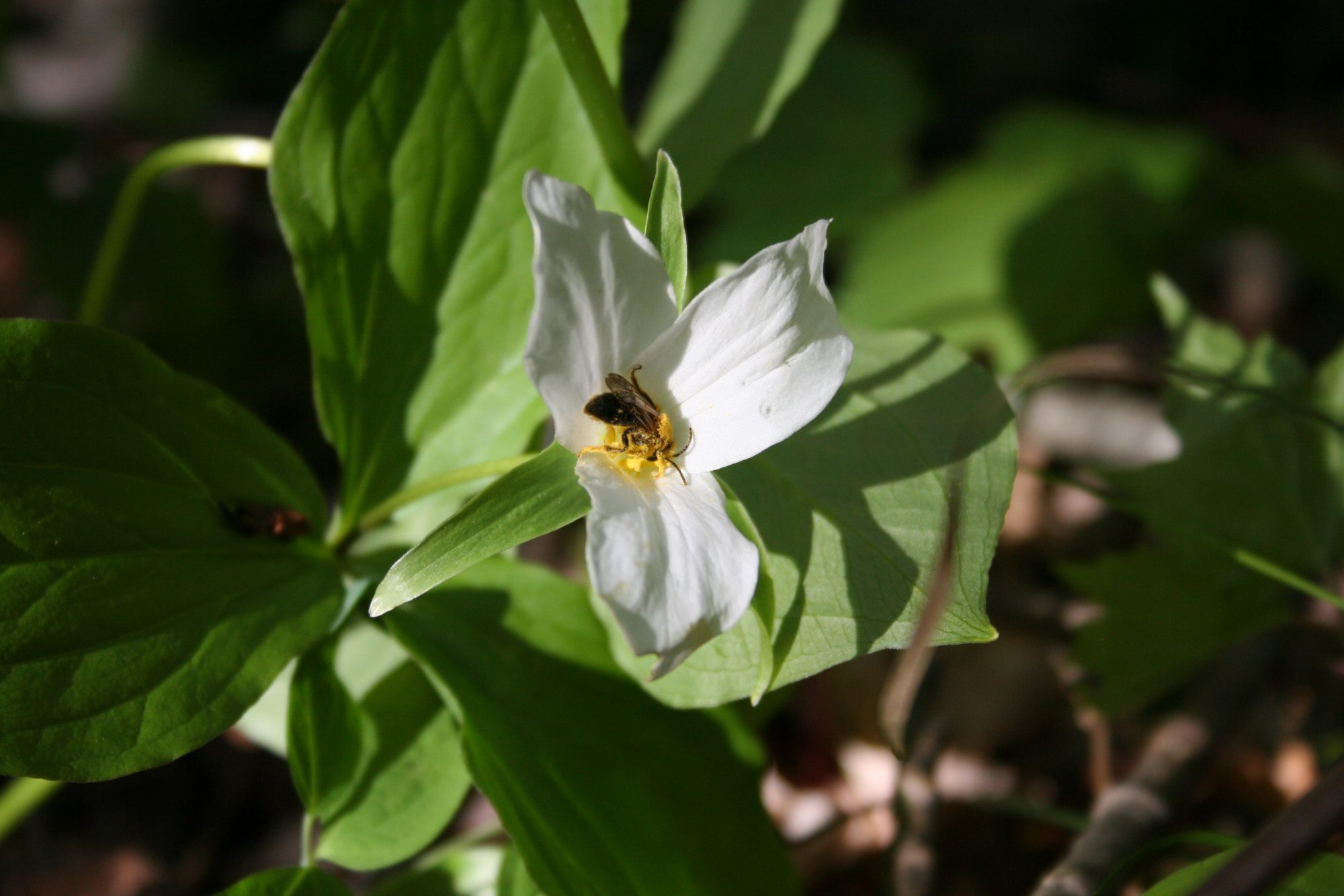 | Benjamin Gilbert (PI) benjamin.gilbert@utoronto.ca Specific research projects can be seen in my publications, and some of my ongoing research projects are listed here |
Graduate Students and Postdocs
| Emma Walker website | PhD Student Species interactions, life-history traits and persistence in spatially patchy landscapes |
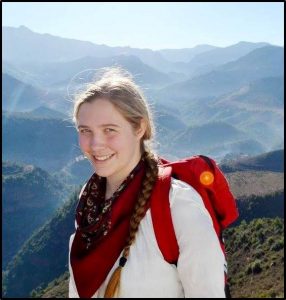 | I am a biologist with a passion for mathematical puzzles, from which an interest in dynamic systems and theoretical ecology has stemmed. My research uses math to address basic and applied ecological questions that revolve around how and when species should persist in spatially-patchy landscapes, and how spatial structure, species traits and species interactions determine the answers to this question. One example that I am currently working on is how large-scale changes (e.g. climate change or invasive species) versus localised events (e.g. habitat destruction or point source pollution) differentially affect the dynamics of metapopulations and their transient dynamics, such as extinction debts. |
| Dale Pebesma | PhD Student Freshwater ecosystems in urban environments |
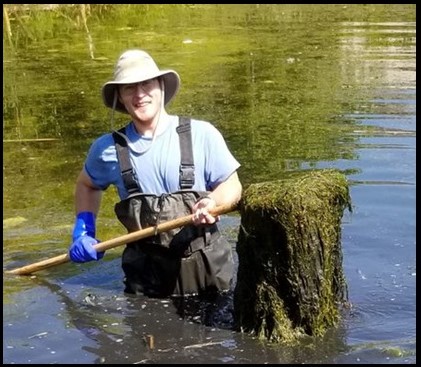 | I am an urban ecologist studying the impacts of anthropogenic activity on freshwater ecosystems. My PhD research uses a combination of data science and field work to better understand the spatial and temporal drivers of change in urban benthic invertebrate communities. In collaboration with the Credit Valley Conservation authority, I am currently working on understanding how urbanization alters our expectations about the structure and function of invertebrate communities, leveraging multivariate statistical techniques to explore 20 years of monitoring data. I am also investigating diversity in unlikely places, examining invertebrate communities in stormwater management ponds, to better understand what species are present, what factors contribute to diversity, and what effect stormwater management ponds have on the broader aquatic ecosystems in which they are imbedded. |
Graduate and Postdoc Alumni
| Charlie Loewen (postdoc) website email | Biodiversity Across Scales As Environments Change |
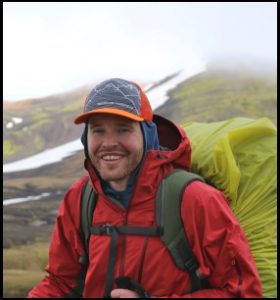 | I am a community ecologist interested in the complex tangle of factors driving biodiversity patterns across time and space, especially in freshwater ecosystems. My research addresses how organisms respond to environmental changes at different scales and the mechanisms responsible for maintaining aquatic ecosystem health. Current focal projects are evaluating the impacts of introduced sportfish on native prey communities along natural elevation gradients and examining relationships between human land-use, cultural eutrophication, and the prevalence of toxin-producing cyanobacteria in our waters. I am also interested in how we measure the various dimensions of biodiversity and food web structure—and how common sampling and statistical decisions bias the results of empirical studies in conservation biology. |
| Leila Forsyth (PhD 2022) | The influence of fragment size on functional trait diversity through space and time |
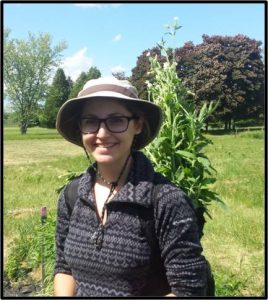 | Anthropogenic changes, such climate change, affect species interactions with each other and their environment, but the long term effects of these changes are still unknown. I am interested in the effects of a changing environment on species interactions and coexistence. For my Master’s, I am looking at the effects of fragmentation on an experimental plant metacommunity, using functional traits to measure community-wide changes that may occur due to fragment size. My goal is to test whether the loss and gain of functional diversity in smaller fragments is due to random chance alone by comparing fragment data to the expected random shift in traits that should occur through species-area relationships and species-time relationships. |
| Ruiping Luo (MSc 2021) | Environmental change impacts across trophic levels |
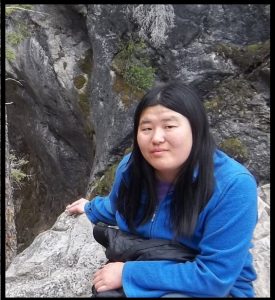 | I am broadly interested in the influence of environmental factors on species interactions and ecological communities. My research is focused on how temperature and drought can impact the strength and consequences of trophic interactions in terrestrial systems, and the interactive effects of these variables. I investigated these questions by setting up and manipulating simple experimental food chains. Through these studies, I aim to determine the response of plants growth and defense, and herbivore populations under different environments and over time. I hope this research will help us to better understand the mechanisms through which the environmental factors influence dynamics between trophic levels. |
| Drew Anthony (PhD Student until 2020) | Community assembly and disassembly in urban ecosystems |
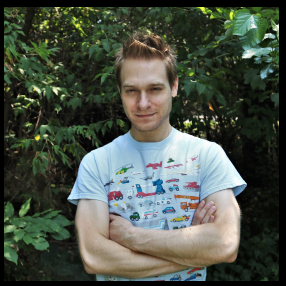 | My research interests are broad, roughly scaling the fields of community ecology and terrestrial ecosystem ecology, with a burgeoning interest in landscape ecology. I have a background in herpetology, ecotoxicology, environmental science, and plant ecology (but I also have an amateur’s passion for entomology and forest ecology!). For my PhD project I’m hoping to put my experience in the ecological and environmental sciences to good use advancing the relatively new and exciting field of urban ecology. I hope to add to the growing body of literature pertaining to the development of a “Science of Cities”, which conceptualizes the metaphorical urban jungle as a functioning, human-dominated ecosystem. |
| Dr. Eric Harvey (Postdoc) website email | Trophic network structure, resilience and importance for mitigating disturbance |
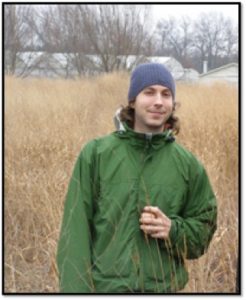 | Trophic interactions can mediate the effects of global change on population and ecosystem dynamics either locally via bottom-up or top-down mechanisms or regionally via spatial cascade processes. In that context, the interaction between local and regional processes is paramount to predicting the impacts of anthropogenic disturbances on biodiversity and ecosystems. My research incorporates elements from food web and meta-ecosystem theory to study i) the way in which disturbances propagate in food webs ii) how these structural changes in the food web translate into functional change; and iii) finally, how do these functional changes can spatially cascade to affect regional-scale dynamics in terms of diversity and ecosystem functioning as well as the delivery of ecosystem services for human societies. I address those questions using a diversity of approaches including field and microcosm experiments. |
| Dr. Denon Start (PhD 2019) website email | Ecological and evolutionary influences on diversity in spatially isolated communities |
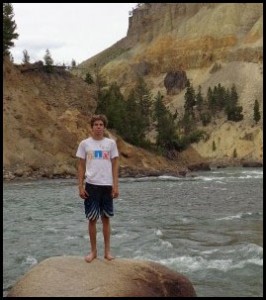 | I study the ecological and evolutionary causes and consequences of trophic interactions, and how these processes are altered by spatial factors. I am currently combining field and microcosm experiments, observational studies, and theory to ask: (1) What characteristics of a community confer high or low levels of ecological drift (e.g., size, isolation, trophic level)? (2) How does predator loss in isolated habitats alter interactions between herbivores and plants? (3) Do consumer losses in isolated habitats create variation in consumer-resource coevolution? During my PhD I plan to address these and other questions loosely related by the themes of community assembly, species interactions, and coevolution. |
| Katie Brown (MSc 2018) | Decoupling the effects of population size and fragment size on pollination |
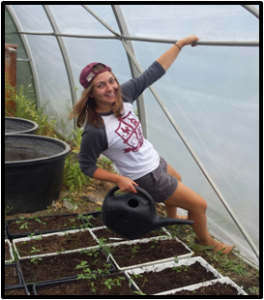 | I am broadly interested in how trophic dynamics affect species co-existence, and how these ecological processes are influenced by spatial factors. I am currently studying how pollinator foraging dynamics can influence the persistence of locally rare plant species in an experimental metacommunity. Through this work, I hope to understand: (1) the independent and joint impacts of community context and population size on plant reproductive success via pollinator visitation, and (2) whether pollinator mediated interactions are mainly facilitative or competitive for rare plant species and thus promote or reduce the probability of persistence. Through my MSc, I plan to address these and other questions related to the ecology and evolution of trophic interactions, species co-existence and community assembly. |
| Dr. Tess Grainger (PhD 2018) website tess.grainger[at]mail.utoronto.ca | Local and regional impacts of temperature on a plant-insect metacommunity |
 | I am interested in how the impacts of climate change on local processes (e.g., competition) and regional processes (e.g., dispersal) affect metacommunity dynamics. I am using the community of insects that specialize on common Milkweed (Asclepias syriaca) to explore these questions. For these insects, milkweed patches are the sole source of food and are connected by dispersing individuals. I am experimentally manipulating temperature to determine how it alters competitive and trophic interactions within patches and dispersal rates among patches. As metacommunity theory predicts that dispersal rate can strongly influence coexistence outcomes of species living in patchy environments, I’m interested to see whether climate-induced changes in dispersal exacerbate or dampen local-scale impacts of environmental change. |
| Dr. Rachel Germain (PhD 2016) website email | The ecology and evolution of coexistence mechanisms in Mediterranean annual plant communities |
 | I study the ecological causes and consequences of the evolution of coexistence mechanisms, and how these may be moderated by local conditions on shorter timescales. By combining mathematical theory with field and greenhouse experiments in annual plant communities, my work addresses three questions: (1) how do species differences, environmental variability, and biogeographic history combine to regulate phylogeny-coexistence patterns in nature, (2) how do lagged responses to the environment and competition, through parental effects, alter species dynamics, and (3) what role does the interaction between spatiotemporal variability in the environment and dispersal play in shaping patterns of diversity? |
| Dr. Natalie Jones (PhD 2016) website email | Understanding how life-history traits and environmental gradients structure diversity |
 | For my doctoral dissertation, I am testing 1) factors that limit species distributions across latitudinal gradients and how these factors may be influenced by global climate change, and 2) how temporal ‘insurance’ or ‘resurrection’ dynamics may mitigate these changes. I am using a mixture of sampling and experimental approaches to address these questions, with all work based on aquatic zooplankton communities that I sampled along a latitudinal transect from southern British Columbia to the Yukon Territory. |
| Kelly Carscadden (MSc 2015) google scholar email | Niche breadth differences in Mimulus |
 | It is commonly observed that geographic range sizes and niche breadths of even closely related species can differ dramatically. The mechanism underlying a species’ niche breadth carries implications for future adaptive potential. Under the umbrella of the niche breadth hypothesis, I’m investigating a number of questions using monkeyflowers: 1) How are phenotypic plasticity and local adaptation contributing to niche breadth; 2) In a species with wide niche breadth, is this breadth found within or between populations; and 3) Is the degree of environmental heterogeneity encountered across a species’ range reflected in its functional traits |
| Emily Drystek (MSc 2014) current position email | The effect of local adaptation on colonization dynamics in an alvar metacommunity |
 | Alvars are distinct habitat patches, formed with a thin layer of soil on a limestone or dolostone base. Alvar communities harbor a variety of rare species. For an alvar metapopulation to persist, localized extinction needs to be supplemented with colonization by seeds from other patches. As anthropogenic changes (road building, farming and grazing) increasingly isolate alvar patches, these seeds may need to arrive from more distant alvars. My research tests whether adaptation to local conditions decreases the likelihood that a species will recolonize following a local extinction. |
| Dr. Felipe Nuvoloni (Visiting PhD) research website email | Species turnover through time: non-equilibrium dynamics across metacommunities |
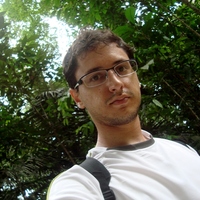 | My research focuses on the ecology, distribution and systematics of mites that occur on rubber trees. During my research exchange at the University of Toronto, I am developing methods to characterize and understand non-equilibrium dynamics in mite metacommunities from several provinces in Brasil. |
Current Undergraduate Students
| Isabela Borges | KSR undergraduate research award, 4th year project |
| Lydia Wong | NSERC undergraduate research award (USRA), 3rd year project |
| Suhas Srinivasan | 4th year project co-supervised by Prof. Nicole Mideo |
| Zachary Moore | 4th year project |
| Laura Curran | 2nd year research project |
| William Wang | 2nd year research project |
| Anthony Rajkumar | 2nd year research project |
| Duncan Martin | 2nd year research project |
Former Undergraduate Students
| Anne Campbell | Greenhouse Research Manager |
| Claire Manglicmot | Greenhouse Research Project |
| Dylan Longert | Research Opportunities Program, 3rd year project |
| Matthew Coffey | Research Opportunities Program, 3rd year project |
| Lucy Genua | Centre for Global Change Science (CGCS) Undergraduate Award, 4th year independent research project |
| Alex Fang | 2nd year research project |
| Munzir Rahman | 2nd year research project |
| Leane Kim | 2nd year research project |
| Joane Plahouras | 2nd year research project |
| Veronica Chong | NSERC USRA email |
| Jui (Rachel) Chang | Research Opportunity Program, 3rd year project |
| Madeleine Digregorio | Research Opportunity Program, 3rd year project email |
| James Boyko | 4th year independent research project current position email |
| Ilana Travshunsky | Research Opportunity Program, 3rd year project email |
| Enxhi Kondi | Research Opportunity Program, 3rd year project |
| Deirdre Loughnan | CGCS Undergraduate award and 4th year independent research project email current position |
| Christopher Blackford | 4th year independent project email current position |
| Jillian Moran | 4th year independent project |
| Juliette Martineau | 2nd year research project |
| Adam Rego | 2nd year research project |
| Stephanie Bland | 3rd year independent research project email current position |
| Teresa Tufts | Research Opportunity Program, 3rd year project |
| Jessica Finnie | Research Opportunity Program, 3rd year project |
| Alexandra Mushka | CGCS undergraduate award, 2nd year study |
| Alanna Leale | 2nd year research project current position |
| Alexandra Barrany | 2nd year research project |
| Suchinta Arif | 4th year independent research project current position |
| Matt Cumming | 4th year independent research project email current position |
| Michael Desilets | 2nd year research project |
| Tonny Banh | 2nd year research project email |
